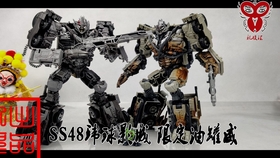Unraveling Connections: Peter, I Know Paul, I Know - Who Are You?
#### Description:In the intricate tapestry of human relationships, the phrase "Peter, I know Paul, I know - who are you?" serves as a fascinating entry poin……
#### Description:
In the intricate tapestry of human relationships, the phrase "Peter, I know Paul, I know - who are you?" serves as a fascinating entry point into the exploration of social networks and personal connections. This title evokes curiosity and invites readers to delve deeper into the dynamics of acquaintance and identity within social circles.
In today's interconnected world, understanding the relationships we form can lead to profound insights about ourselves and those around us. The phrase suggests a web of familiarity, where the presence of Peter and Paul hints at a larger network of relationships that influence our lives. But who are you in this scenario? This question opens the door to self-exploration and the examination of our own identities in relation to others.

When we think about the connections we maintain, it's essential to consider the nature of these relationships. Are they superficial acquaintances, or do they hold deeper significance? The phrase "Peter, I know Paul, I know" indicates a level of familiarity that suggests trust and shared experiences. It prompts us to reflect on our own connections—who do we know, and how do these relationships shape our understanding of ourselves?
Moreover, this title can resonate with various audiences, from social media enthusiasts to those interested in psychology and sociology. In the age of digital communication, the way we connect with others has transformed dramatically. Social media platforms allow us to maintain a vast network of acquaintances, but how many of these connections are meaningful? The question “who are you?” challenges us to consider the authenticity of our relationships in a world where connections can often feel fleeting or superficial.
As we explore the implications of this phrase, we also touch on the concept of identity. Each person in the equation—Peter, Paul, and you—brings their own unique experiences, backgrounds, and perspectives. Understanding who you are in relation to others can lead to greater self-awareness and personal growth. It encourages us to ask ourselves: What do our relationships say about us? How do they influence our choices, beliefs, and values?
Furthermore, examining the social dynamics at play can reveal much about group behavior and societal norms. The connections we forge can reflect broader cultural trends and social structures. By analyzing who knows whom, we can begin to understand the patterns of influence and the flow of information within our communities. This inquiry can extend to professional networks, friendships, and even familial ties, highlighting the importance of nurturing meaningful relationships.

In conclusion, the phrase "Peter, I know Paul, I know - who are you?" serves as a powerful catalyst for discussion about identity, connection, and the human experience. It encourages us to reflect on our own relationships and consider the impact they have on our lives. As we navigate our social landscapes, let us embrace the complexity of our connections and the richness they bring to our understanding of ourselves and the world around us.
By engaging with this topic, readers can gain valuable insights into their own social networks and the importance of fostering authentic relationships. Whether you're looking to deepen your connections or simply understand the dynamics at play in your life, this exploration promises to be both enlightening and rewarding.